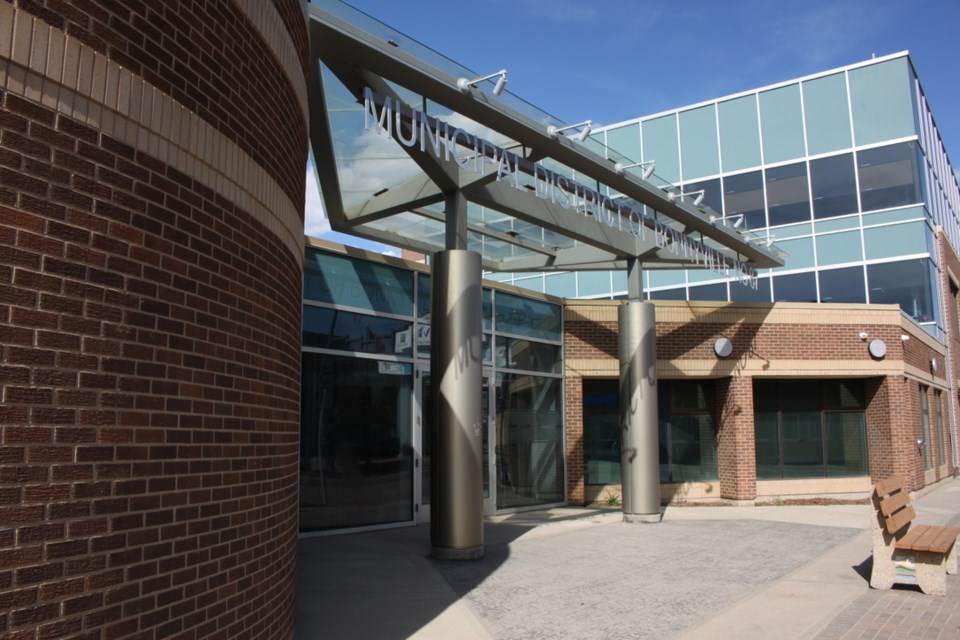BONNYVILLE – Rural crime and the ineffectiveness of a "catch and release system" were recently discussed by Bonnyville-Cold Lake-St.Paul MLA Scott Cyr and the MD of Bonnyville.
The discussion took place during the Sept. 24 MD of Bonnyville council meeting, where MLA Cyr was on hand to touch base with council on current issues.
“Currently, with the MD’s approximately $1.6 million in policing costs, it just seems like the cops - I thank them for their service - but it seems like their hands are tied. It's a catch and release system and it's not working,” said Coun. Josh Crick.
Crick acknowledged that while the judicial system is a federal issue, he hopes the province is doing whatever is possible to address concerns.
“Clearly rural crime is an issue throughout our entire constituency, not just the MD of Bonnyville. This is a challenge that all of my municipalities are facing right now,” said Cyr.
Cyr thanked the MD of Bonnyville for its proactive role in addressing rural crime issues.
Cyr acknowledged that both the MD and the City of Cold Lake have wanted to see commitments from the Minister of Justice Mickey Amry, on the direction their taking towards mitigating rural crime, and to get definitions around peace officers and what they can and can’t do.
Cyr said he hopes to see changes made at the federal level.
“Maybe we can start seeing people being held accountable for [their crimes], because one of the things that I will say is we arrest them and they just get let go with the catch and release system,” said Cyr.
Cyr described what is happening on a provincial level to improve the response to crime.
The MLA said he recently had the Minister of Mental Health come out, as many of the people who are turning to crime are also struggling with addiction.
“It's important that we start to look at breaking that cycle where they're being arrested and then being released. It's time that we start looking at putting them through a program that can break that cycle and maybe take some of the homeless off of the streets,” said Cyr.
Cyr brought up the restorative justice recently established, the St. Paul Healing to Wellness Court. It offers Indigenous offenders access to traditional knowledge keepers, Indigenous legal counsel, Elders, and access to community support agencies.
Smudging is allowed in the court room, and an eagle staff is included for admissions of oaths.
“First Nations holding First Nations accountable for crimes - that's something that hasn't been tried before and I'm going to tell you it's nice to see that we're getting some real buy-in from our first Nations and our Métis from the region,” said Cyr.
“They're dealing with this crime wave as much as we are here. If they can help break some of the cycles that some of their people are going through, that's a step forward,” continued Cyr.
He also brought up the provincial task force that aims to tackle the complex issues of addiction, homelessness, and crime. Cyr commented that Bonnyville is high on the Crime Severity Index, and he hopes the task force will target problem areas within his riding.
“They've had some success in both Edmonton and Calgary, so they've been focusing on there for now, but I will tell you that getting some of those sheriff units, those special units, out to rural areas, especially our area, is something I'd like to see.”
Cyr says Minister of Justice Mickey Amery is very aware of Cyr’s desire to get the task force targeting issues within his riding.
“This is not just about law enforcement, it’s also about the families that are being affected by this. Children and Family Services is also a big part,” said Cyr.
Cyr mentioned the restructuring of Victim Services, and the Womens' shelters in Cold Lake and St. Paul. The Bonnyville Friendship Centre is also spearheading the building of a local women’s shelter.
“It comes down to the fact that we are taking a lot of movement forward to try to solve this at a provincial level, but clearly, it's not going to be solved overnight. Really, some of these individuals just need to be thrown in jail for a long period of time, and until we get a more friendly [federal] government that really stands up for its citizens, I don't see this happening in the near future,” said Cyr.
Coun. Dana Swigart remarked that much of the crime is related to addiction and asked for clarification on the logistics of sending offenders to rehabilitation facilities.
“The mandatory recovery treatment is what you're talking about, for those that currently don't have the capacity to make decisions for themselves. You've seen these people that are on fentanyl or on meth, they really don't have the capacity to make decisions. The problem is that I believe - that everybody here - believes in freedom. So we have to balance this very carefully,” said Cyr.
Coun. Don Slipchuk voiced his concern about inadequate space to incarcerate people if the catch and release protocol is changed, and if there will be enough space within rehabilitation programs.
Fadeyiw commented on the issues business owners are having with criminals who have upwards of 140 charges, and ineffective rulings by judges.
“The judge may want to convict somebody of a crime, but in the end if they have to choose between a murderer and a person that is breaking into businesses. Clearly it's going to be a hard decision that the judge is going to have to make. We do need to be looking at if we have the capacity, we need to be able to enforce the crimes that are happening,” said Cyr.



